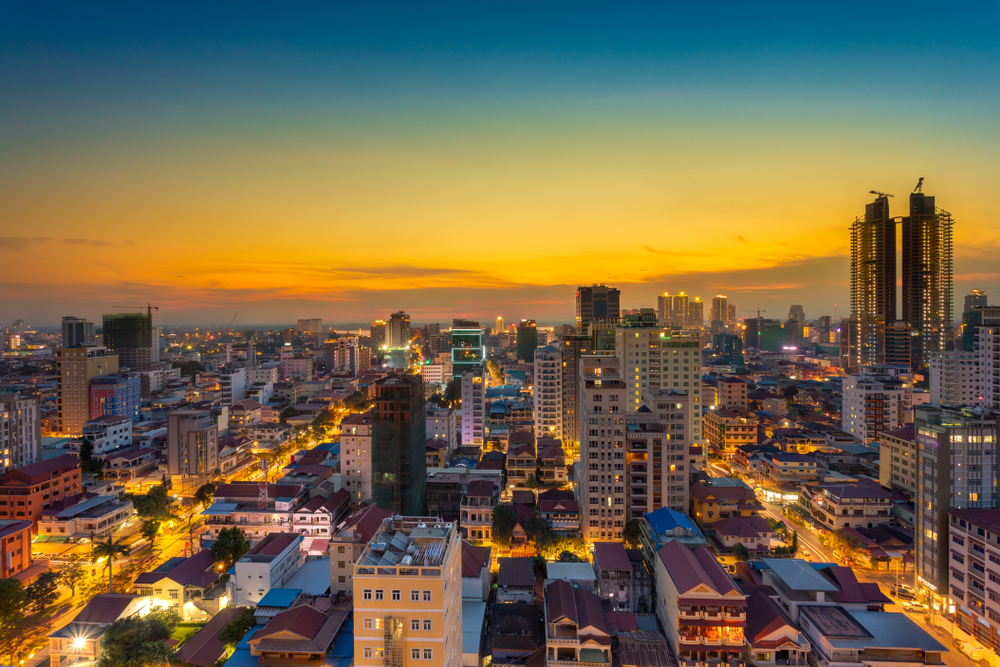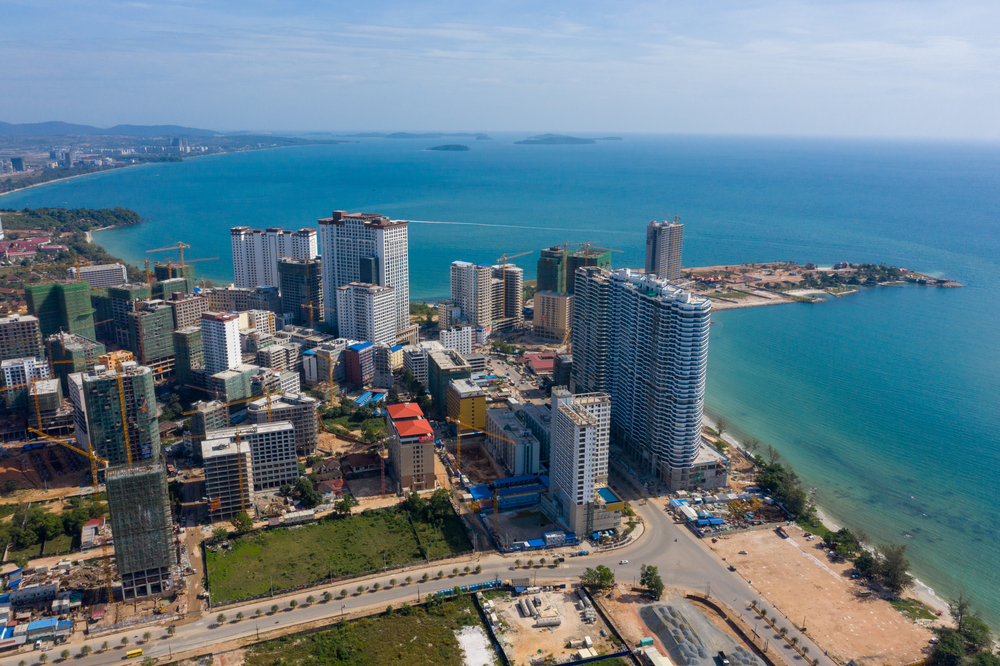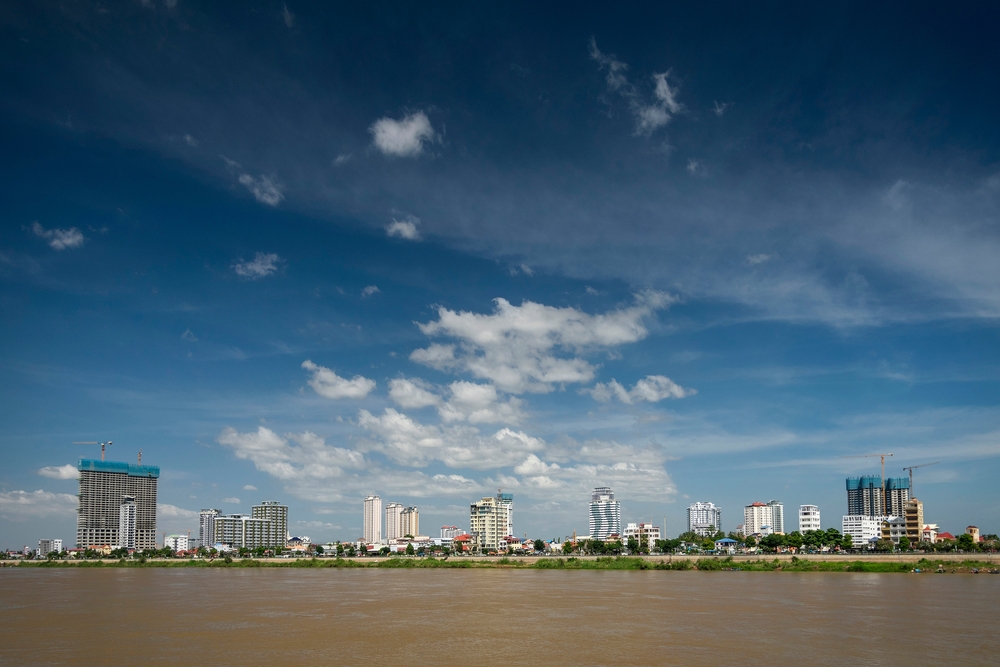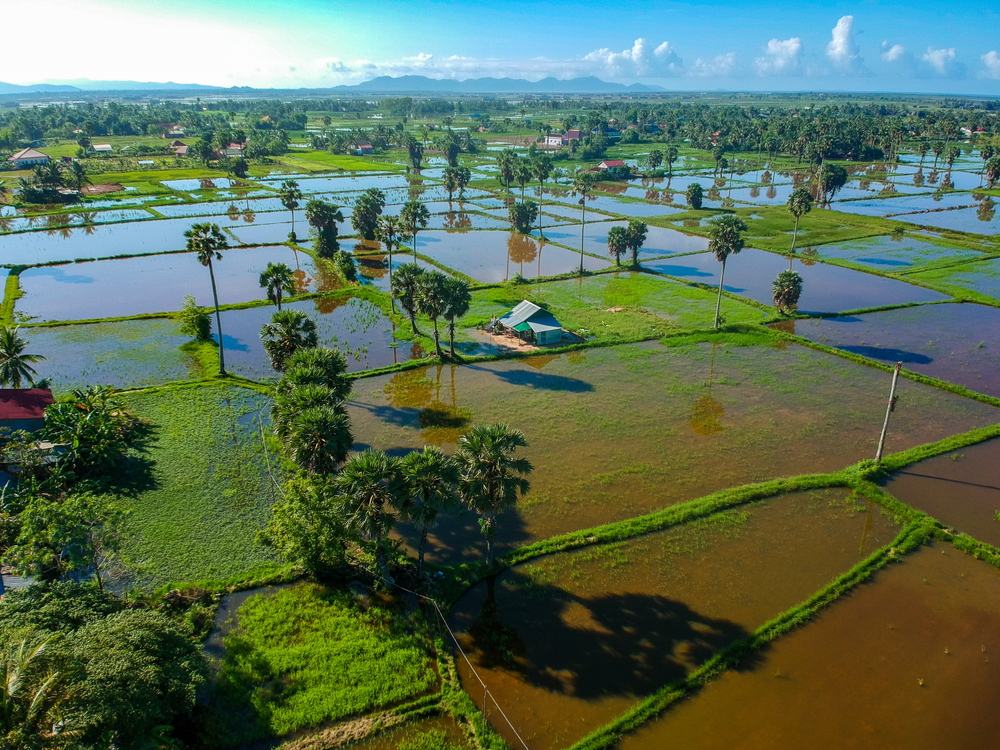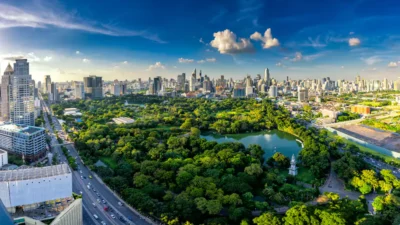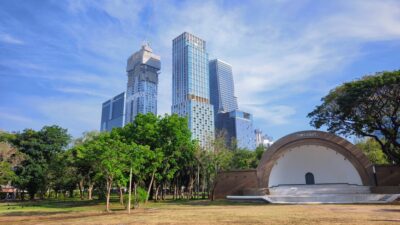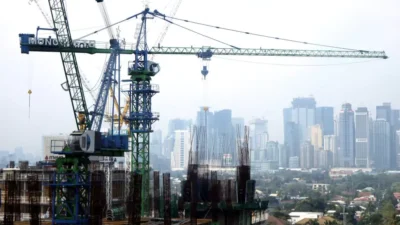When the chips are down in Cambodia
The country’s property sector has slowed dramatically following the boom years, but affordable housing initiatives and interest from local buyers offer chinks of light
When Sihanoukville’s property sector collapsed after years of rampant growth, it wasn’t just the seaside town that suffered. It set in motion a slowdown across the country that is still being felt.
More than 1,000 buildings stand unfinished in the southwestern city. It marks three years since the government pulled the plug on a booming casino industry that led to billions of dollars in investment and turned a cheap backpacker spot into a frenetic gambling mecca.
The government ban on all online gambling led to an exodus of expats and investors. Among those that have stayed, the jubilation of those early years has given way to bitterness as they find themselves ensnared in disputes and litigation.
“There was a lot of greed,” Zhang Jiawei, head of a Chinese business association in Sihanoukville, tells Nikkei Asia.
“Businesspeople wanted to get money, even if they knew the prices of land or rent were too high. It was a bubble and people knew it would break, but you don’t think anything bad will happen to you.
”The unprecedented investment in Sihanoukville which reached its peak around 2017 was fuelled by online gambling.
Operators would rent out space in physical casinos and beam the games from there to mainly gamblers in China.
The industry sparked an entire economy around gambling, with Chinese restaurants, hotels and real estate multiplying. It became a popular place for Chinese to work and play away, and park their money outside China.
In 2019, Hun Sen banned online gambling, saying that the industry had been used by foreign criminals to extort money.
Yov Khemara, director of the Sihanoukville Labour Department, said at the time more than 7,700 locals had been left unemployed after the ban.
Analysts say the damage done to Sihanoukville’s property market was the beginning of a decline across the country as the property bubble burst and the pandemic later hit.
In Phnom Penh, it follows an oversupply in the condo market that started in 2015 and led to a steady downward trend in unit selling prices.
In Siem Reap and Sihanoukville, land prices dropped on average by 11.2 percent and 7.2 percent respectively during the second half of 2020 compared to the same period in 2019 and have yet to go back to normal.
Sam Soknoeun, president of the Global Real Estate Association, says transactions and rentals in the commercial building, office, condominium, apartment, and high-end housing segments “have been devastated” due their reliance on wealthy clients.
“When the Covid-linked economic crisis emerged in late 2019, further downward pressure was put on real estate markets across the globe, including Cambodia, with lockdown measures introduced by governments and flight cancellations reducing arrivals of international visitors and investors to near zero,” he says.
The problem has been compounded by the war in Ukraine and prolonged lockdowns in China to combat Covid-19.
“Unfortunately, the ongoing Russia-Ukraine war has led to soaring energy costs and inflationary pressure, threatening the country’s economic recovery post Covid-19,” said Knight Frank.
“This crisis has impacted the global and regional economic recovery, including China which was a key source of FDI into Cambodia.
Due to its stringent Covid-19 policy, China’s economic recession has led to more frequent lockdowns and retrenchment in its real estate industry, which may harm Cambodia’s economic recovery over the short term.”
The situation has forced many agents and developers to shift their thinking and look to previously overlooked markets, such as local buyers and projects in suburban areas.
The growing trend of young Cambodian professionals renting condominiums starting from USD300 per month indicates a level of support from the domestic market
While land transactions and prices fall in major urban centres, both are growing in smaller urban areas and suburbs, as transactions in the affordable market remain stable, say analysts.
Knight Frank country manager Ross Wheble tells Property Report that the growing interest among local buyers in residential properties like condominiums was an “encouraging sign”.
Equally, he says, is “a growing trend of young Cambodian professionals renting condominiums with monthly rents starting from USD300 per month, indicating a level of support from the domestic market and propping up market prices and rental returns.
“This, in part, can be attributed to developers offering better payment plans and incentives due to a softening in demand from foreign buyers, reducing the barrier to entry for Cambodian buyers and tenants.”
The market has been further buoyed by new government incentives for low-income buyers, who have long been precluded from entering the housing market, says Socheat Khemro, deputy director general at the Ministry of Land Management.
“The government wants to see more developers investing in affordable housing. The price of each affordable house should not be higher than USD30,000 so that low- and middle-income people can buy,” he says.
CBRE Cambodia managing director Lawrence Lennon says: “This implies that the units are going to need to be smaller, affordable or at the very least on the mid-end of the market. It is where the most likely demand is going to come from over the next few years.”
“It’s true that the government wants to promote affordable housing but it will take some time to see the impact,” says Neang Neang Sao, analyst at CBRE Cambodia. “It requires cooperation from both the government and the private sector.”
While analysts don’t expect the local market to take the industry to the heights it reached before the demise of Sihanoukville, it comes at a much-needed time.
According to the World Bank, the “strong rates of growth seen prior to the pandemic will prove challenging” for Cambodia.
“The country remains vulnerable to downturns in external demand and disruptions in global supply chains,” says Maryam Salim, World Bank country manager for Cambodia.
As for Sihanoukville, there are still some banking on a comeback. Maritime City Co Ltd’s has had its proposal approved to build a USD164.4-million hotel, with 582 rooms, in the province.
It comes as the government commissions the Urban Planning and Design Institute of Shenzhen to complete an “ambitious” masterplan to turn the city into a “commercial, services and logistics hub.”
Yet with the city still getting bad press over Chinese gangs operating in the area, having switched their focus from gambling to romance scams, it remains to be seen whether it can build a better image and lift up the industry as a whole like it once did.
This article was originally published on asiarealestatesummit.com. Write to our editors at [email protected].
Recommended
Why Asia’s mixed-use developments are the future of real estate
Dynamic integrated communities are fusing real estate with commercial, leisure, and other amenities
Transforming cities worldwide: Surbana Jurong’s vision for the future
Surbana Jurong excels in master planning, infrastructure, and urban development
Inside Asia’s commercial real estate: The cities thriving and those facing tough times
Shifting consumer preferences, and fluctuating economic policies mean commercial real estate investors in Asia must remain agile
Why young Asians are choosing singlehood and reshaping real estate trends
Marriage is out, and singlehood is in as young Asians subvert convention to explore alternative paths in real estate

